While sitting in a lounge in the D.C. Superior Court waiting to find out if she'd be dismissed or serve jury duty, my TransMilitary codirector Jamie Coughlin glanced up at the TV screens in the juror lounge. She saw CNN airing a story on the 11 states suing the Obama administration over its stance on accommodating transgender students in public schools. Two women behind her started going off on how "sick" they think trans people are. They said, "It's not the way God intended," and asked, "How are we supposed to procreate with these people running around? We need to stop this nonsense."
I agree with their last point. This nonsense does indeed need to stop. People need to get a grip on the difference between sex assigned at birth, gender, and sexual orientation. The moment I step onto my soapbox and start to explain this, which makes so much sense to me and seems to baffle the majority of others, I realize that starting with a very basic, binary model is how you start to shift the perception of who transgender people are.
Our society is in the earliest stages of shifting its thinking about sex and gender to a spectrum, and binary people sharing their stories illustrates that we've all been peeing next to trans* people our entire lives. Military leaders epitomize binary thinking, which is probably why there is some dissent from a few in the trans* community to open transgender service. However, if you can get the Joint Chiefs and secretaries of the Army, Navy, Air Force, Marines, and Coast Guard to understand that transgender people do not identify with the gender associated with their sex at birth, then surely we stand a chance of shifting the thinking of the peanut gallery in Jamie's jury room.
Earlier this year, I sat down for an interview with SPARTA board president Sue Fulton, who has been leading the charge of troops sharing their personal stories with military leaders as they assess how to change the discriminatory policies. "We are bringing people in who have multiple combat deployments, who've been rated at the very top of all of the people in their rank in their unit," she said. "And all they want you to do is to move them from block A, male, to block B, female -- or move them from block B, female, to block A, male -- and treat them that way."
Once we have that change in place, then we can work toward eliminating the notion that gender is either one or the other. This is just the beginning, and we will not leave our nonbinary gender family behind. But right now we need a campaign to familiarize Americans with who transgender people really are, identical to the strategy to repeal "don't ask, don't tell."
DADT repeal went into effect September 20, 2011. The following June, on a hot day in San Diego, the annual LGBT Pride Parade was in full swing. Dwayne Beebe Franqui had made secret plans to propose to his unsuspecting partner, Jonathan. Dwayne, now a master chief in the Navy, had already been serving for 20 years and had held a position within the White House, but all that time he had been forced to keep quiet about who he loved and who he was. "Being in the closet is detrimental to your physical, mental and emotional well-being," Dwayne admitted. He continued, "But as a sailor with responsibilities, you find the strength to make it through."
Sometimes the hypocrisy in the military work environment can't be hidden. "I even served LGB guests such as Dustin Lance Black and Frank Kameny in the White House, but I could never acknowledge to my peers that I was just like them," Dwayne said.
So the first Pride parade following DADT repeal was a larger celebration than usual. It was the first time a military marching contingent could openly express pride in their sexual orientation. Dwayne says, "There I was, marching in uniform, thinking about how after the parade I would ask Jonathan to marry me. But we turned the corner and there he was. My heart skipped a beat, and instead of staying in formation I made a beeline to my love, got down on one knee, and pulled the engagement ring out of my pocket."
Dwayne and Jonathan's story made headlines with its romance and precedence. Their and other stories of openly gay, lesbian, and bisexual service members gave American households the opportunity to have a conversation about what being in a same-sex relationship truly meant. It was about love. Nearly four years after DADT repeal, June 26, 2015, marriage equality became the law of the land.
Today, transgender issues are the hot topic. As a cisgender person working on a feature documentary about transgender people, I've had to learn to keep myself in check when it comes to cis-splaining.
Back in 2013, I was a guest on an online live interview. At the time I thought my passionate advocacy and recent knowledge was enough. Although I had the best intentions, looking back, I realized I used language that today makes me cringe. Specifically, I said transgender people are "born in the wrong body." Today, from listening and learning, I'd say what is wrong is society's thinking that sex and gender must be aligned to be correct.
Fast-forward a few years and I'm sharing dinner at home with transgender service member friends. I ask them, "How do you explain to someone what it means to have gender dysphoria?" My friend Capt. Jennifer Peace, who is a soldier in the film, explained it's like living your life out on a ship and all the time you feel seasick but you don't know why. Then one day, you dock. The ground is no longer swaying and you no longer feel nauseated. You have clarity. That's what it feels like when you know your gender is not aligned with your body. But without being able to transition, it's like you're not permitted to stay on land. You have to go back out to sea and live with the nausea, confusion, and anxiety.
For the next hour this ship analogy was elaborated upon, having us all in fits of laughter, until finally it got so ridiculous that we all agreed that we would never bring up that damn ship again. But honestly, out of all the listening I've done with my transgender friends, that ship feels the most relatable. I can intelligently understand the concept of sex being between your legs and gender being between your ears, but the disorientation of being lost at sea is something most human beings could not only imagine but could actually experience.
So my response to how valuable it is for transgender military members to tell their own stories? It's critical. The way we will fight back the bathroom bills, the onslaught of attacks, and the criticism of protecting transgender people at the expense of the safety of others is to give a media platform to transgender people who are keeping us safe, keeping us free, and protecting the democracy we love and hold dear. And that is why my team and I -- hoping Jamie isn't tied up for too long in jury duty -- are making the feature documentary TransMilitary.


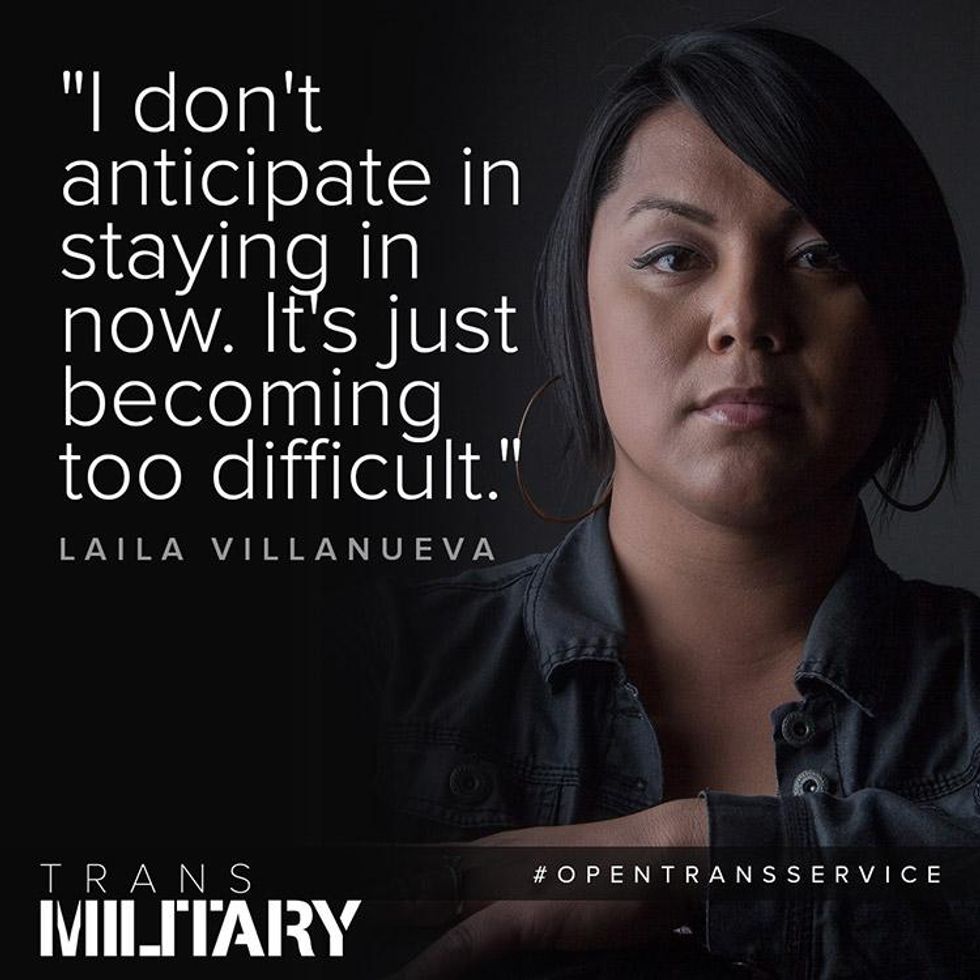
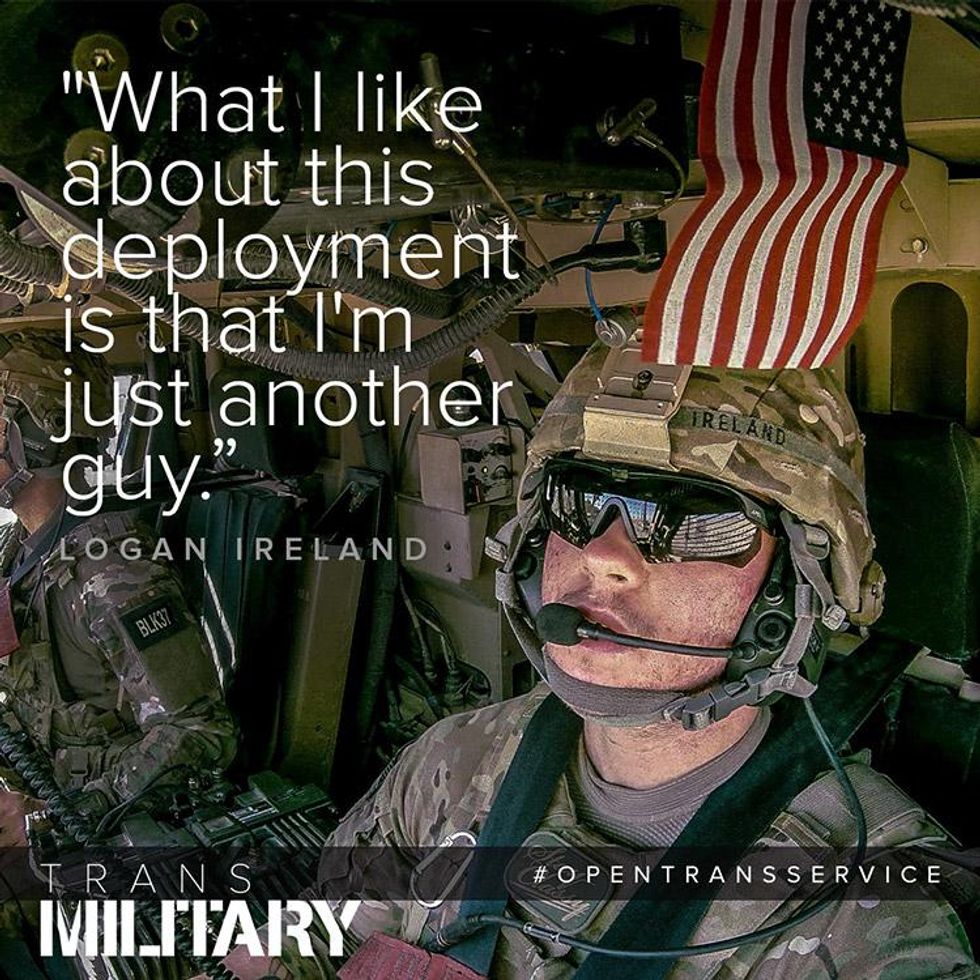
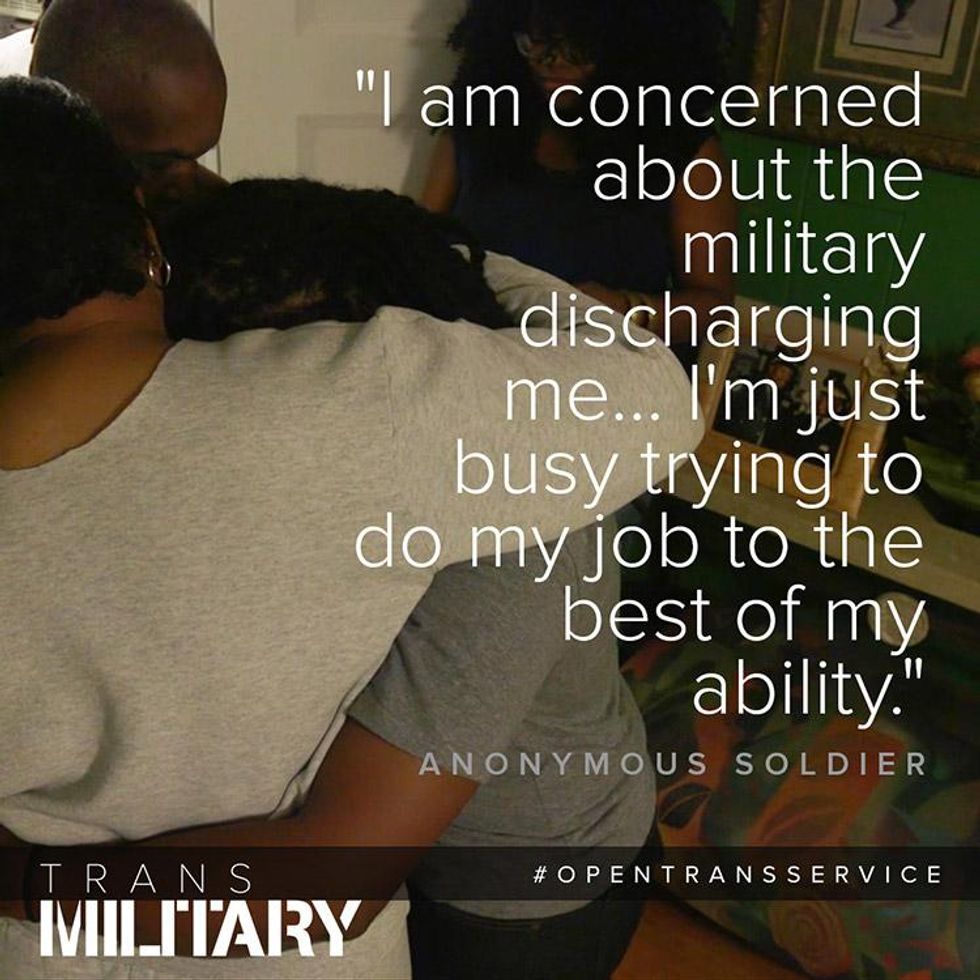



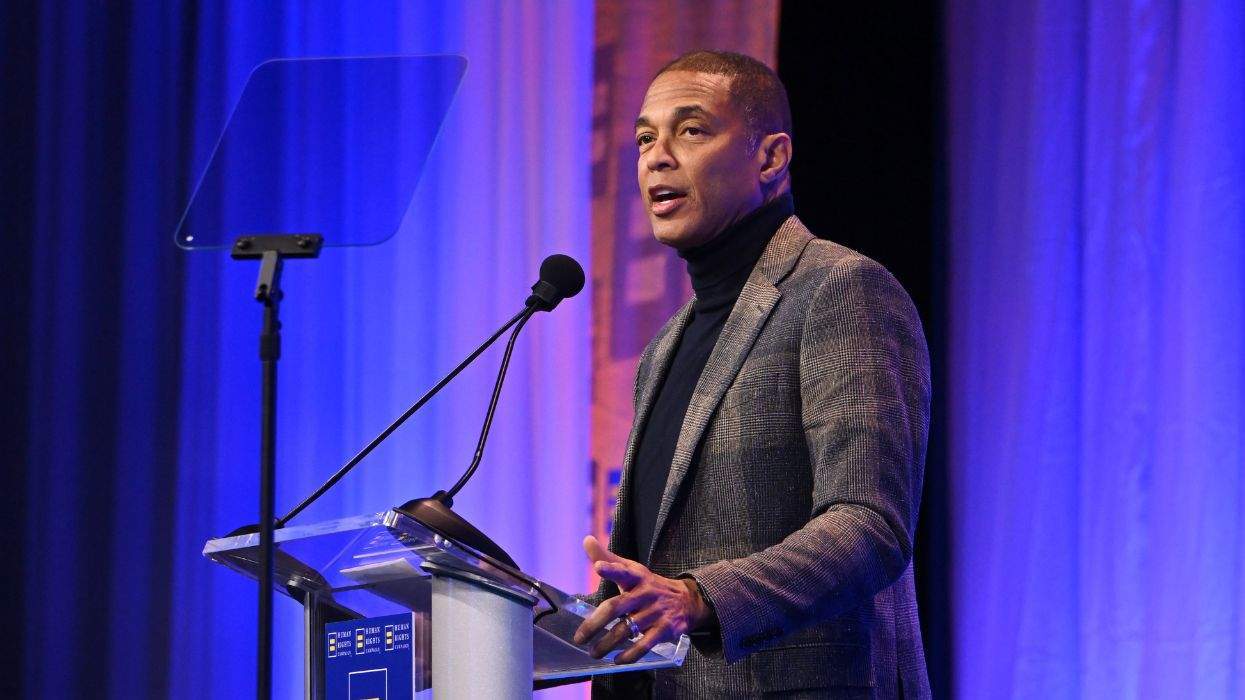







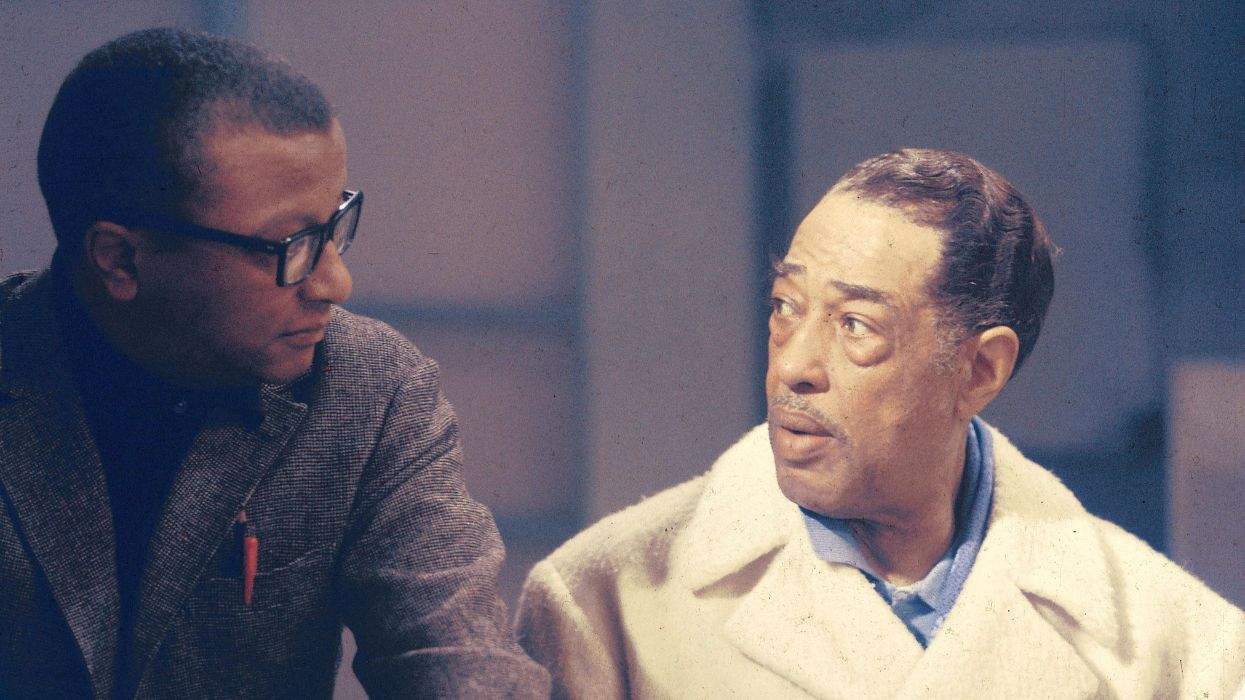
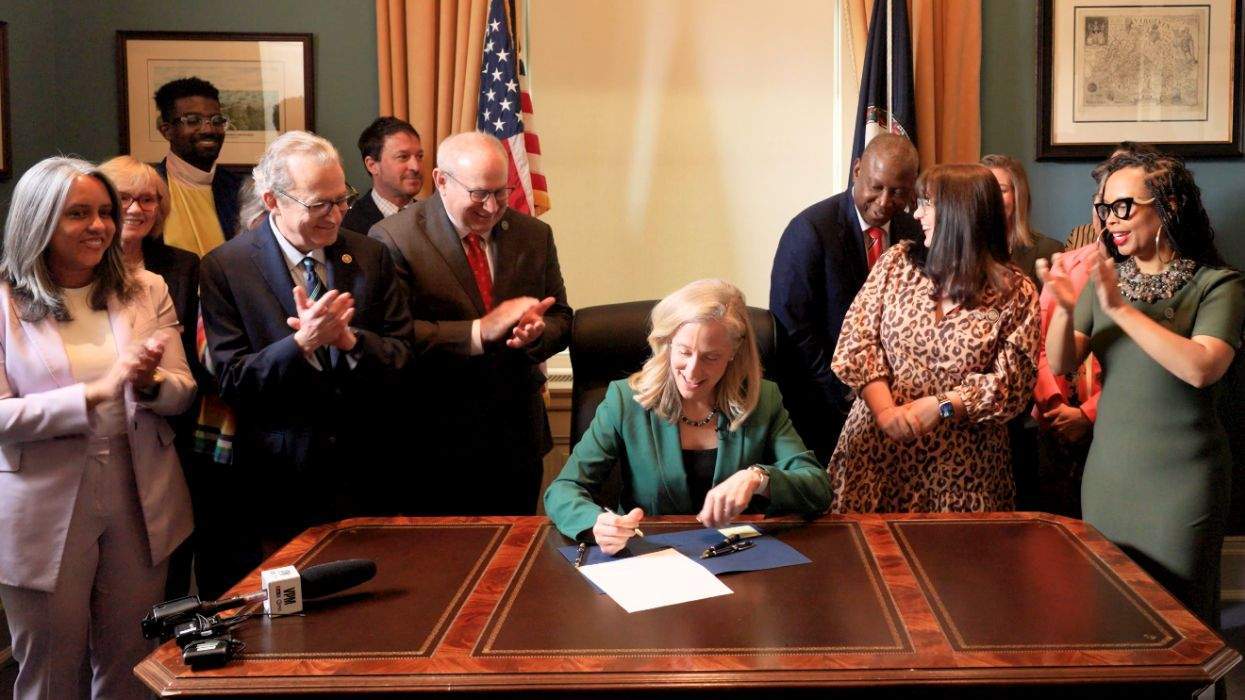

Charlie Kirk DID say stoning gay people was the 'perfect law' — and these other heinous quotes
These are some of his worst comments about LGBTQ+ people made by Charlie Kirk.